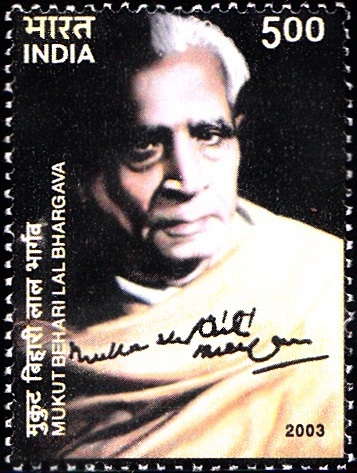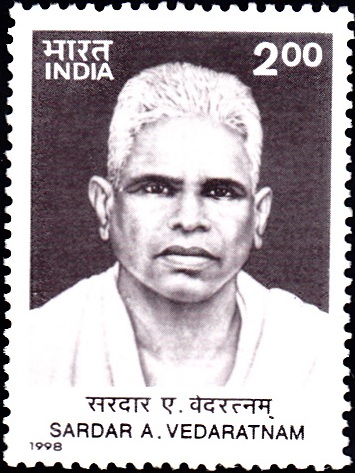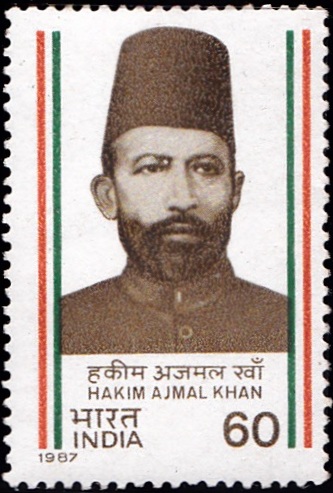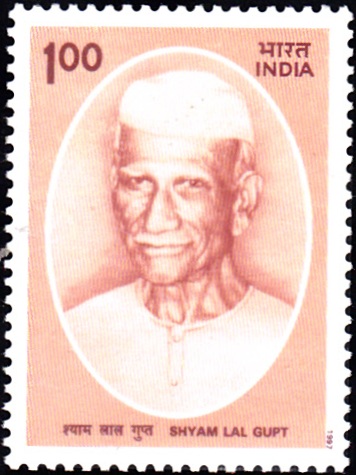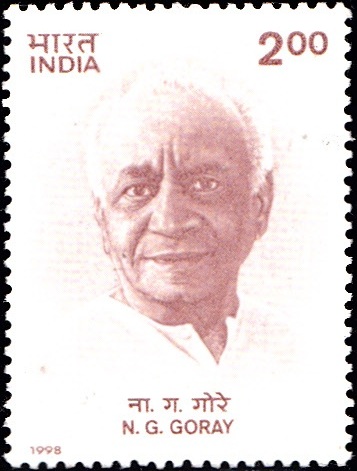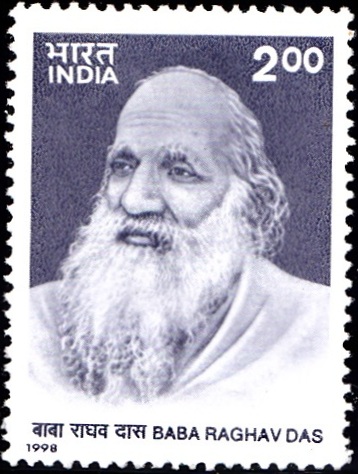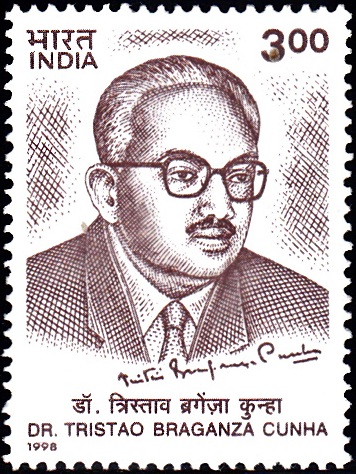
Dr. Tristao Braganza Cunha
A commemorative postage stamp on the 40th Death Anniversary of Tristão de Bragança Cunha, father of Goan nationalism :
Issued on Sep 26, 1998
Issued for : The Department of Posts is happy to issue this stamp to commemorate this great patriot and freedom fighter.
Credits :
Stamp : Sankha Samanta
FDC : Alka Sharma
Type : Stamp, Mint Condition
Colour : Single Colour
Denomination : 300 Paise
Overall size : 3.91 x 2.90 cms.
Printing size : 3.55 x 2.54 cms.
Perforation : 13 x 13
Paper : Imported un w/m Adhesive Gravure Coated stamp paper in reels 47 cms width
Stamps Printed : 0.4 million
Number per issue sheet : 35
Printing Process : Photogravure
Printer : India Security Press, Nashik
Name : Tristão de Bragança Cunha
Born on Apr 2, 1891 at Chandor, Goa, India
Died on Sep 28, 1958 at Mumbai, India
About :
- Portugal was the oldest colonial power in India and the last one to leave the Indian soil. The British after establishing their control over India allowed Portugal to retain her colonial possession in India – Goa, Daman, Diu, Dadra and Nagar Haveli. The Father of the nationalist movement in Goa was Tristao da Braganza Cunha. The dramatic entry of Mahatma Gandhi on the political horizon of India stirred the mind of Tristao who vowed to fight for the rights of his people in Goa, who led a subjugated life under the Portuguese colonial rule. He contributed articles in the French papers like Clarite and L’Humanite pleading forcefully for the cause of India‘s independence. He exposed the vicious British propaganda and half truths on the massacre of Jallianwalla Bagh in the European Press.
- In 1928 Tristao formed the Goa Congress Committee and started a campaign for Goa‘s freedom and its integration with India. He believed that Goa being a legitimate part of India, Goa‘s freedom was implicit in India‘s independence. In the 43rd session of the Indian National Congress held in Calcutta he got the Goa Congress Committee affiliated.
- The sudden and spontaneous Civil Disobedience Movement initiated by Dr. Ram Manohar Lohia in Goa on 18th June, 1946 turned out to be the most significant event in the lives of the Goan nationalists including T.B. Cunha. He was specially marked by the Portuguese authorities for victimisation at the opportune moment. He personally experienced the Portuguese brutality when he was arrested and beaten on 30th June, 1946 for participating in the meeting at Madgaon. Though let free on the day subsequently on 12th July he was taken into custody at the Madgaon Railway Station and was detained in Aguada Jail. He was tried by the Territorial Military Court on 24th July, 1946 and was sentenced to eight years imprisonment and a penalty of suspension of political rights for 15 years. Within a few days while he was unwell, he was secretly removed to the jail in the military barracks of Alto dos Alparqueiros and from there was deported to Portugal.
- He was freed two years before the term on account of the amnesty but his movement were restricted to Lisbon city. He was not allowed to come back to India. However, he succeeded in securing the tourist passport to Paris, and escaped to India on 4th September, 1953.
- On landing in Bombay, he took upon his shoulders the task of uniting all. Goan political parties under the banner of Goa Action Committee. He continued to champion the cause of Goa‘s freedom through his writings in ‘Azad Goem‘, a Konkani paper which he himself published and through an English periodical, Free Goa, published from Belgaum and subsequently edited by him in Bombay till he breathed his last on 28th September, 1958. Though he fought relentlessly for Goa‘s freedom he could not witness Goa’s liberation for which he longed.
- As a thinker, writer and humanist he was respected by the French intellectuals like Henri Barbusse, Romain Rolland and others. In the words of K.M. Panikkar, “he was nationalist India’s first ambassador to France“.
- This renowned Goan humanist was honoured posthumously by the World Peace Council in Stockholm in 1959 for his eminent contribution to the cause of Peace and Friendship among peoples.
- Text : N.C.E.R.T. and Material supplied by Home Department, Government of Goa.



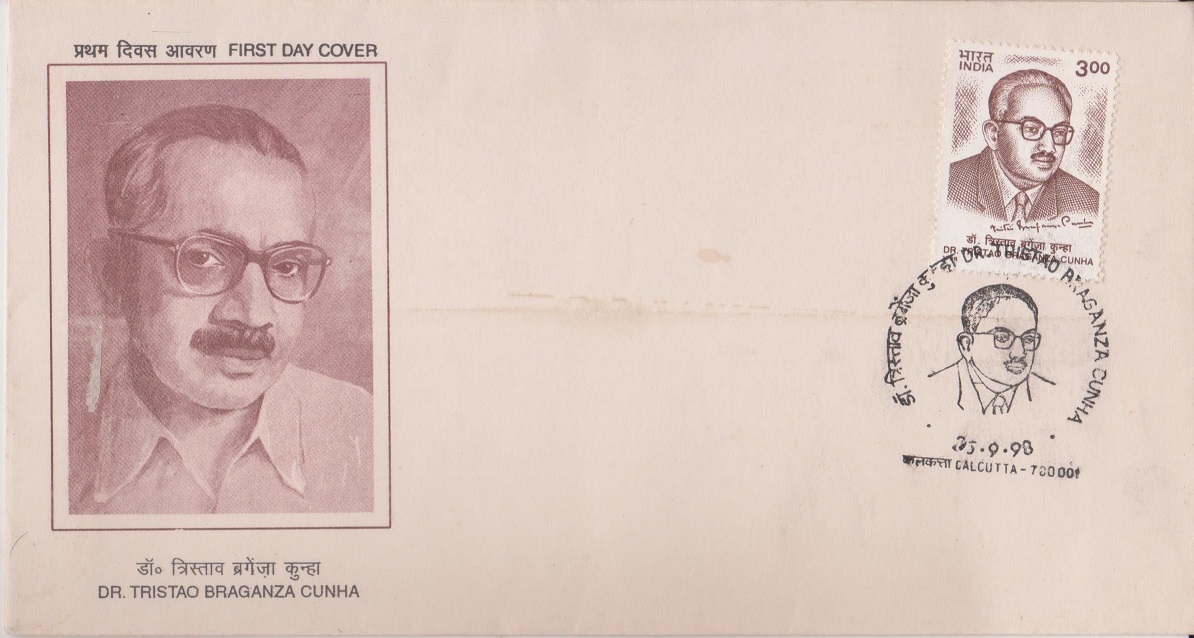 Issued by
Issued by